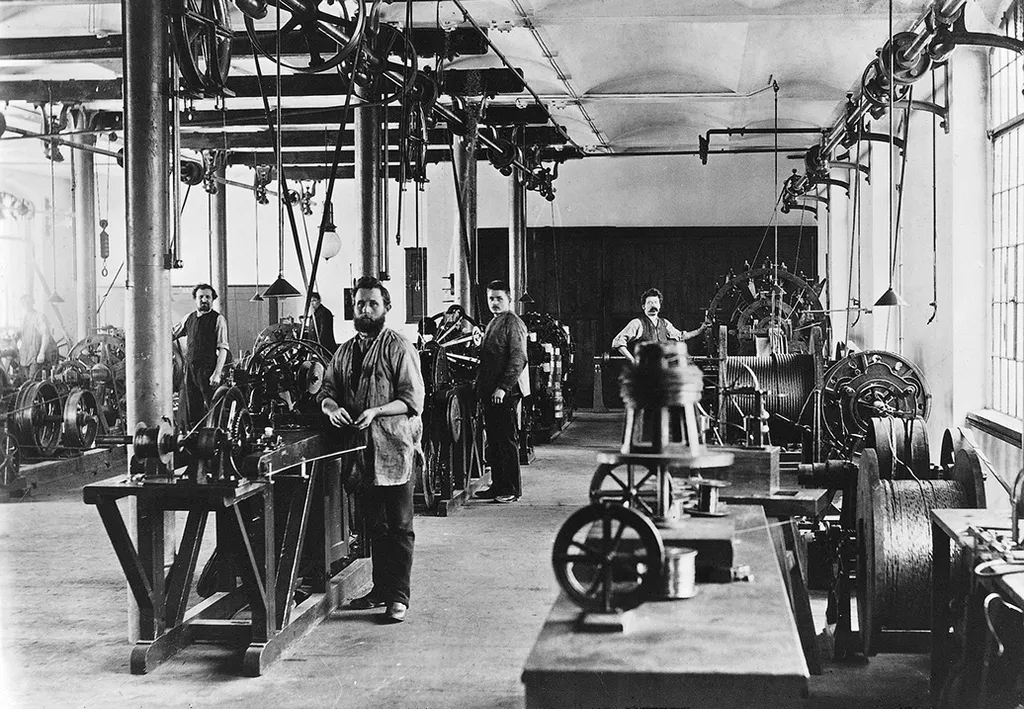It happened on the afternoon of May 4th. A message from a colleague—who has since become a good friend—popped up on my screen, urging me to check my emails. When I opened my inbox, there it was: an email from the COO. The email announced an impending company-wide layoff and mentioned that, within a few minutes, I’d receive another email letting me know whether I was impacted. A short while later, the second email arrived. I was among those affected—along with most of my team.
The situation felt surreal. One by one, my colleagues posted in our team chat, confirming they’d been impacted too. Before our accounts were locked, we quickly jumped on a call. We had just 30 minutes to have one final conversation as a team, to say our goodbyes. It was a bittersweet moment, sharing those last words with people I’d worked so closely with.
It was difficult to process what was happening. Just ten months earlier, the company had gone through another round of layoffs. And at the beginning of the year, during the company’s kick-off event, the president assured us there wouldn’t be any more layoffs. They even said the company was performing well financially. So, why was this happening?
Signs of a Layoff
Looking back, my colleagues and I were not entirely surprised by the layoff. There were several warning signs that hinted something was coming. I want to share these signs so you can be better prepared if you ever face a similar situation.
1. Cancellation of Team Events
One of the earliest indicators was the sudden cancellation of team events. When I heard from other teams that their off-site events were canceled without any clear explanation, it immediately raised red flags. These cancellations often signal that the company is going to announce something about the team structure and doesn’t want you to be with your team in the same place. This is because one of your teammates—or you—might be impacted, and you’d need to cancel flights, hotels, etc. To avoid dealing with these logistical issues, the company preemptively cancels the event.
2. Unexpected Notifications About Packages
Some employees at the company received notifications about packages scheduled to arrive at their homes. This happens because services like DHL notify you through their app when a package is on the way. If your company requires you to return your work equipment, like a laptop, after being laid off, they often arrange for these shipping boxes to be delivered in advance. If you unexpectedly see a notification about a package from your company’s IT provider, it’s a strong sign that a layoff is imminent—and you may be impacted.
3. Lack of Vision from Leadership
The absence of a clear vision from leadership is one of the most common signs of an impending layoff. During off-site or kick-off events, you might notice that leaders seem unsure of the company’s direction. When this lack of clarity is followed by team restructuring, and then another restructuring just a few months later, it becomes evident that the leadership is struggling to find focus. Ultimately, this cycle often ends with a layoff, accompanied by yet another round of restructuring for those who remain.
4. Sudden, Vague Meetings
Another sign is the appearance of unexpected, vague meetings on your calendar. These meetings are marked as “important” with no clear agenda, and attendance is mandatory. If this happens, it’s often a precursor to a layoff announcement. Public companies, in particular, may choose to send layoff notices via email to align the timing with when they notify investors.
5. Timing Around Quarterly Results
If your company is publicly traded, layoffs are frequently announced in conjunction with quarterly earnings reports. This can be especially stressful because, leading up to every financial results announcement, employees may anxiously wait to see if layoffs will accompany the news. If no layoffs are announced, you know you’re safe—for at least one more quarter.
You’re Just a Row in an Excel Table
When I looked back on my time at the company and all the things I had accomplished, I was surprised to be impacted by the layoffs. It wasn’t because I thought I was better than others—it was because I believed I was doing more than what was expected of me. However, during a layoff, it seems that who you are and what you do doesn’t matter. In most cases, the decision is made by people who don’t even know you. This realization made me question the concept of work, which is part of the reason I’m writing this blog post.
I was hired as a Backend Developer. When I joined my team, I noticed a project that needed a developer to implement the client-side feature in React Native. Although I had no prior experience with React Native, I had worked with React before, so I volunteered for the task. I shipped the feature without any issues, received positive feedback from my team and lead, and eventually, my title was changed to Developer, making me a full-stack developer.
In some instances, I worked on projects independently, always aligning with my team and ensuring my work was reviewed. I would implement the backend first and then move on to the client-side. This was my expected role, and in performance reviews, I was consistently rated as a high performer. Yet, I was always doing more than what was expected of me.
Sometimes, I worked on small features I thought would enhance the app. These features might not have been used by many, but they provided significant value to heavy users. Occasionally, I shipped these under the radar. I created dashboards to measure the impact of my team’s work, helping us focus on features that would bring the most value to users. I also built proof-of-concept features based on user requests to show leadership how easily they could be implemented, advocating for their prioritization. Additionally, I participated in hackdays, creating projects to showcase innovative ideas.
On several occasions, I was selected for special projects outside my team. These projects often came directly from the CEO, and I was chosen because I constantly wanted to do more for the company and our users. For some of these projects, I worked more than eight hours a day, including weekends. A few of these initiatives were mentioned in financial reports, praised by the CEO during all-hands meetings, or retweeted multiple times by the CEO on Twitter.
Over time, I gained the attention of senior management in my business unit, which consisted of about 400 people. I began directly interacting with the VP of Product and the VP of Engineering, both of whom were four or five levels above me. Occasionally, the VP of Product would message me directly to ask if a feature was feasible to implement. Later, the VP of Engineering started scheduling regular one-on-one meetings with me, which was highly uncommon. During these calls, he told me multiple times that if I continued working at this level, I could quickly climb the ladder to become a Staff Developer. He wasn’t the only one saying this to me.
Beyond my immediate role, I also sought ways to contribute to the broader company. Whenever a new tool was introduced, I would explore it, write detailed articles about my findings, and share them to help other teams use the tool more effectively.
I referred many friends and former colleagues to the company because I believed in its mission. If I recall correctly, I referred over ten people, four of whom received offers, and three were ultimately hired. I also encouraged many others to consider joining the company.
I even initiated discussions about translating our website into Turkish to support the many customers we had in Turkey. A few weeks before the layoff announcement, I was helping a team working on this project find a Turkish-speaking content designer because they noticed my willingness to assist.
Additionally, I tried to convince friends who were CTOs at major e-commerce companies to migrate their websites to our platform. Whenever I received job offers from e-commerce companies on LinkedIn, I used those opportunities to promote our platform instead. I passed along leads to the sales team and later noticed that one of those companies had indeed moved to our platform.
I’m not sharing all of this to brag but to highlight that, in the end, none of it mattered. On the day I announced I had been laid off, I received numerous messages from colleagues, even those I hadn’t worked with directly, telling me that I had inspired and motivated them. While those messages were heartwarming, they didn’t change the reality: to the company, I was just a row in an Excel sheet.
The Broken Trust of Modern Work
Layoffs were uncommon when I started working, and being a developer felt like an incredibly safe job. In most professions, the unspoken rule was simple: if you performed well and the company was financially stable, your job was secure.
But today, companies are announcing layoffs alongside record-breaking financial results. You work hard, focus on impactful projects, and receive praise from your lead—only to find yourself let go by someone who likely doesn’t even know you exist. It feels as though the trust between companies and employees is now broken. Companies, it seems, are either unaware of this shift or unwilling to address it. And frankly, I’m not sure how they could fix it.
What’s particularly strange is that the layoffs predominantly affect individual contributors—the people who have little say in deciding the company’s direction. These are the team members closest to the users, the ones who spend hours planning how to improve the product. But after those plans are made, leadership often swoops in and redirects efforts toward entirely different goals. You trust their judgment, work on their priorities, and deliver on time. Then, when the arbitrary goals they set aren’t met, the company decides to cut staff. Those who made the poor decisions remain, and some are even promoted, while the people carrying out the work are let go. It feels surreal—like an episode from Silicon Valley—but this is how big companies operate.
I’m not alone in feeling this way. Many friends and ex-colleagues who’ve been laid off in recent years share similar experiences. They’ve lost trust in their employers. They believe their efforts won’t matter in the long run and anticipate being part of the next layoff cycle. As a result, they only do what’s strictly required to avoid a performance improvement plan. No one goes above and beyond anymore; no one takes initiative to improve things. Why? Because it doesn’t matter. They’ve seen firsthand that it changes nothing.
For those like me who’ve experienced layoffs, work has become just that—work. You do what’s assigned, and if your company squanders your potential or forces you to waste time on unnecessary projects, you simply stop caring. You collect your paycheck at the end of the month, and that’s it. This is the new modern work: no more striving to be 40% better every year.
The Myth of Job Security in Germany
Since I was working for a German entity of a company, I want to address a common myth about job security in Germany. Many people believe that it’s nearly impossible to be fired in Germany. While this is partially true for individuals who have completed their probation period, it doesn’t hold up in the context of layoffs. If a company decides to lay off, for instance, 40 employees, German law doesn’t prevent this. Instead, the law enforces a social scoring system to determine who is affected, prioritizing the protection of the most vulnerable employees, such as those with children. In this sense, when it comes to layoffs, the difference between Germany and the US is minimal.
Suggestions for Those Who Haven’t Been Laid Off (Yet)
When I talk to friends who were laid off in recent years, we often reflect on what we could have done differently. Here are some of the lessons we’ve learned:
- Stick to your contract hours. If your contract says 40 hours, work 40 hours—no more, no less. Protect your personal time and well-being.
- Avoid going above and beyond with initiatives. Many companies encourage impactful work to earn promotions, but instead of chasing internal advancements, focus on switching companies to achieve your next career step.
- Always keep interviewing. One of the biggest mistakes I’ve seen is stopping interviews after starting a new job, trusting in the company. Instead, continuously explore opportunities so that if a layoff happens, you already have other options lined up.
- Leverage external offers for salary growth. Companies often resist giving substantial raises to existing employees but pay top dollar for new hires. Regularly interview elsewhere, and if you get an offer with a 20% or higher salary increase, consider taking it. Many people have seen their compensation triple or quadruple this way in just a few years.
- Don’t overthink your résumé. Worrying about short experiences on your CV isn’t worth it. You can always tailor your résumé—leave out brief roles, or consolidate short-term jobs as freelance experience. Ultimately, your résumé is just a starting point; your skills will be assessed during the interview process.
You’ve probably noticed that I didn’t mention the name of the company I was laid off from. That’s because I believe it’s irrelevant. Everything I’ve shared reflects the current state of the tech industry. It might differ at very small companies, but once you work at a company with more than 100 employees, you’ll likely encounter many of the same patterns I’ve described.
I’ve wanted to write about this topic for a long time, but it’s been difficult to find the energy. The subject itself is a deep disappointment for me, and every time I reflect on layoffs, it makes me profoundly sad. It’s a stark reminder of how companies treat workers as disposable. Before you join, they go to great lengths to make you feel valued and excited to accept their offer. You meet multiple people, and some even offer signing bonuses. But when layoffs come, you’re reduced to a name on a list. During the exit interview, a random person from the company reads a prepared script and can’t answer your questions. The HR team that once worked to make you feel valued doesn’t even conduct an actual conversation with you. That random person becomes the last connection you have to a company you spent years at.
The layoff fundamentally changed how I perceive work now. I don’t think that I’ll be the same person again.




